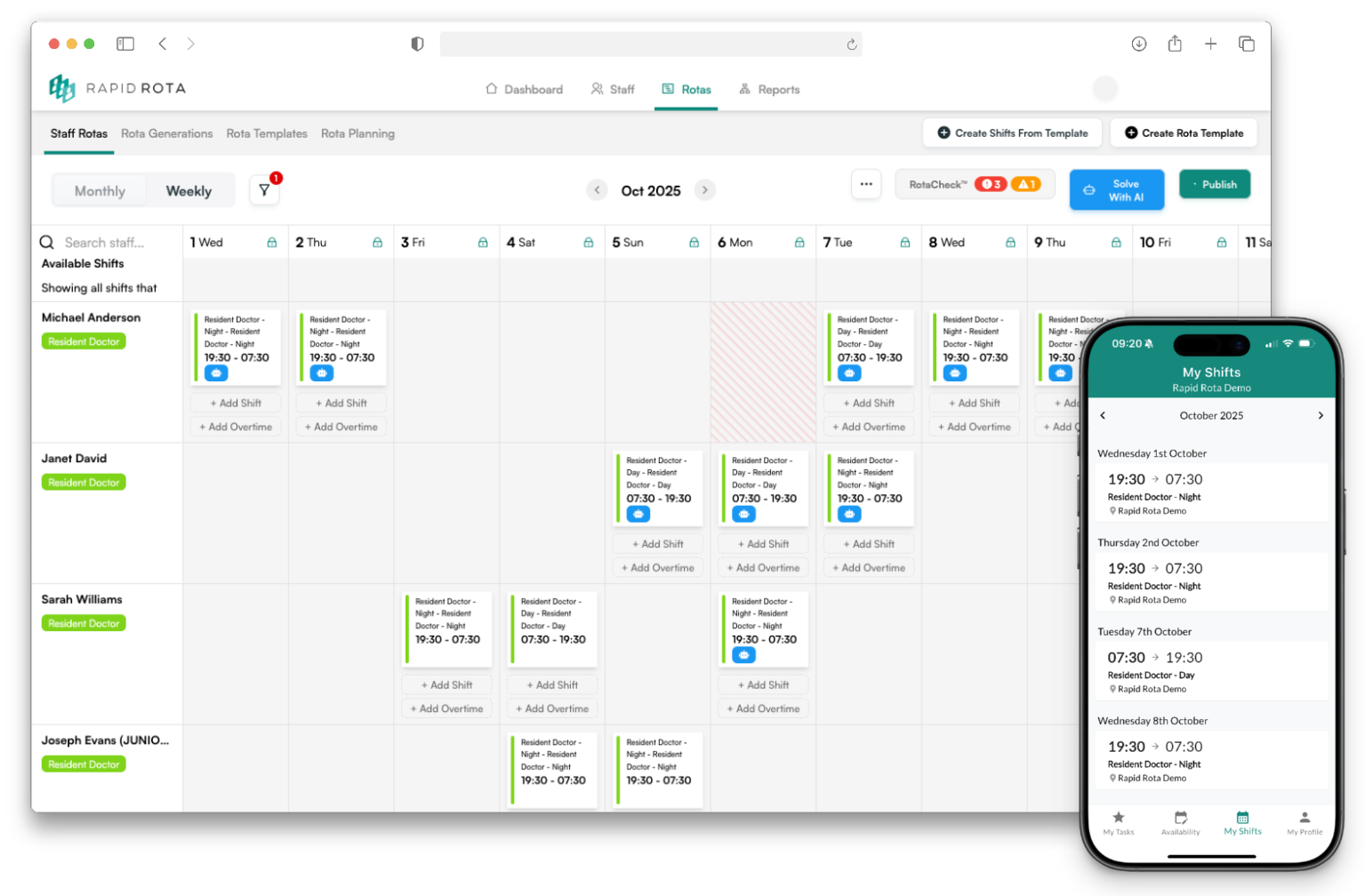Effortless Healthcare Rota Planning
Save time, cut stress, and keep shifts covered – powered by AI.

Save time, cut stress, and keep shifts covered – powered by AI.

Fatigue among air ambulance teams, particularly in helicopter emergency medical services (HEMS), poses serious safety and performance risks. Smarter shift planning and enhanced fatigue risk management are vital to maintain both crew well-being and mission effectiveness.
Fatigue diminishes psychomotor vigilance, increases self-reported tiredness, and negatively impacts decision-making and operational performance — all of which can compromise flight and patient safety.
The primary cause is insufficient, poor-quality sleep, often exacerbated by:
The most effective defence against fatigue is ensuring sufficient, high-quality sleep — ideally 7–9 hours daily without interruptions.
Sleep hygiene training helps crew members develop routines for better sleep despite irregular schedules, including:
Using predictive fatigue calculators during daily pre-flight safety briefings increases awareness of individual and team fatigue states.
This enables proactive rota decisions, reassignment of roles, or increased supervision where needed.
Extended 24-hour shifts within HEMS can allow more in-shift rest opportunities. However:
On return journeys or repositioning legs, it may be beneficial to:
Supporting crews beyond shift design includes:
Fatigue is an inevitable challenge for air ambulance teams, but smarter shift planning can significantly reduce the associated risks.
A combination of personal responsibility and systemic solutions is necessary to maintain optimal performance and ensure both crew well-being and patient safety.
Rapid Rota gives you the power to plan smarter, faster, and fairer.